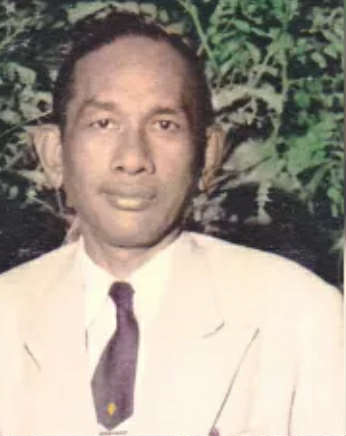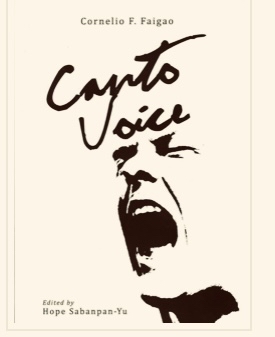Cornelio Faigao and the ‘Canto Voice’
Passage

Born in Banton, Romblon, Cornelio Faigao finished an education degree at U.P. Diliman, moved to Cebu in 1929, studied law and in 1940 passed the bar and married Rosita Go of Argao, Cebu. He actively worked as a journalist in Cebu newspapers, including Republic News.
Cornelio Faigao and the ‘Canto Voice’
ERMA M. CUIZON
Sept. 19, 2013
CORNELIO Festin Faigao’s column in canto verses daily depicted the culture and the politics in Cebu in the ‘40s and ‘50s, touching on topics mundane and great, from junkets to pork barrel spending. Cebu journalist Faigao’s column “Canto Voice” opened the morning to Cebuano readers of the Pioneer Press from the late 1940s, later of an independent paper he put up and edited in the late ‘50s, The Southern Star.
In the ‘50s, “Canto Voice” also appeared in the Morning Times, Cebu Daily News (not today’s CDN) and The Republic Daily.

Faigao’s column appeared, successively, in five Cebu newspapers, in this order: Pioneer Press, Southern Star, Morning Times, Cebu Daily News (not the present CDN), and Republic Daily (later renamed Republic News).
Born in Banton Island in the province of Romblon where his father Rufo was the first presidente municipal, Faigao left the island in 1929 at age 21 and spent most of his life in Cebu for its attraction of outlets for works by young poets, essayists and journalists. Faigao took up education in 1931 in the University of the Philippines, law in 1939 back in Cebu and a master’s degree in English at the University of San Carlos in 1951 where he also taught and became the chairman of the English department. He died in 1959 at the age of 51.
RELATED: More about Faigao, what he did in Cebu https://www.facebook.com/groups/advocatesforheritagepreservationphilippines/posts/1587257158103320/
As a writer, the newspaper editor dreamed of the need to publish his literary songs in book collections, a wish which came through in 1936 with “The Song of the Hos-Katting (after Longfellow)” and in 1946 with “Song of Freedom.”
His essays and poetry were also published in national newspapers and magazines such as the Philippines Free Press. He married nurse Rosita Go of Argao and had three children now all living outside the country—Mabuhay (food and beverage professional), Bataan (Eastern arts educator and poet) and Linda Hall (New York playwright).
It was in the late 1940s when, as an active journalist and a writer with a wide grasp of local and national events, he came out in the newspaper Pioneer Press with his “Canto” column, which was satiric poetry in a journalist’s milieu.
“Canto Voice,” published as a book in 2013 by the University of San Carlos Press, is a compilation of free verse in six cantos depicting a lifestyle in politics, community projects, social events, even in disaster news. The poet’s touch is obvious in his show of wit in verse on issues illustrating life in the country.
In the compilation of poems under the classification of columns, corruption in politics is well covered in “Compadre.”
Got a case to “fix” and “settle”?
There’s a fellow who should know that.
Be it big or be it little
Let the compadre do that.
Want a job recommendation?
You need one, you can’t forego that.
Worry not of compensation,
The compadre will do that.
In 1984, the Cebuano Studies Center of the University of San Carlos, through the efforts of Dr. Resil Mojares, then USC professor emeritus and founding director of the center, opened the annual Cornelio Faigao Memorial Writers Workshop to honor the journalist as a writer and educator and to recognize the man’s effort in inspiring young writers. The workshop is now on its 29th year.
The 1940 limerick style of a column by Cornelio Faigao called “Canto Voice” was revived years after by journalist Jose G. Logarta Sr. in his poetic satiric view as editor of The Republic News.
The first of Logarta’s “Canto Voice” came out on Oct. 24, 1962, and the verses kept coming till at least 1984. The rhymes covered social issues from the high cost of living to the rise and fall of the peso.
In the 1980s, his son, Jose “Viking” Logarta Jr., wrote his own limericks in Cebuano in The Freeman called “Gitikgitik ni Otik.” 
